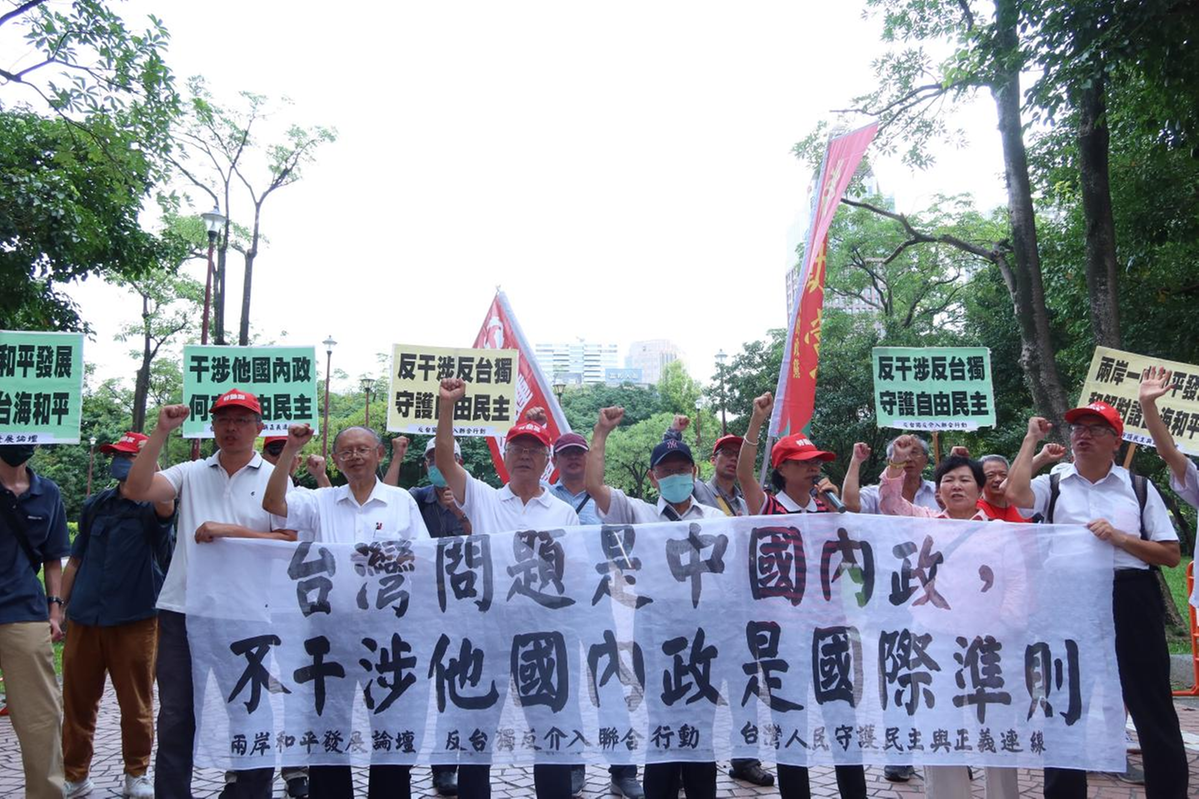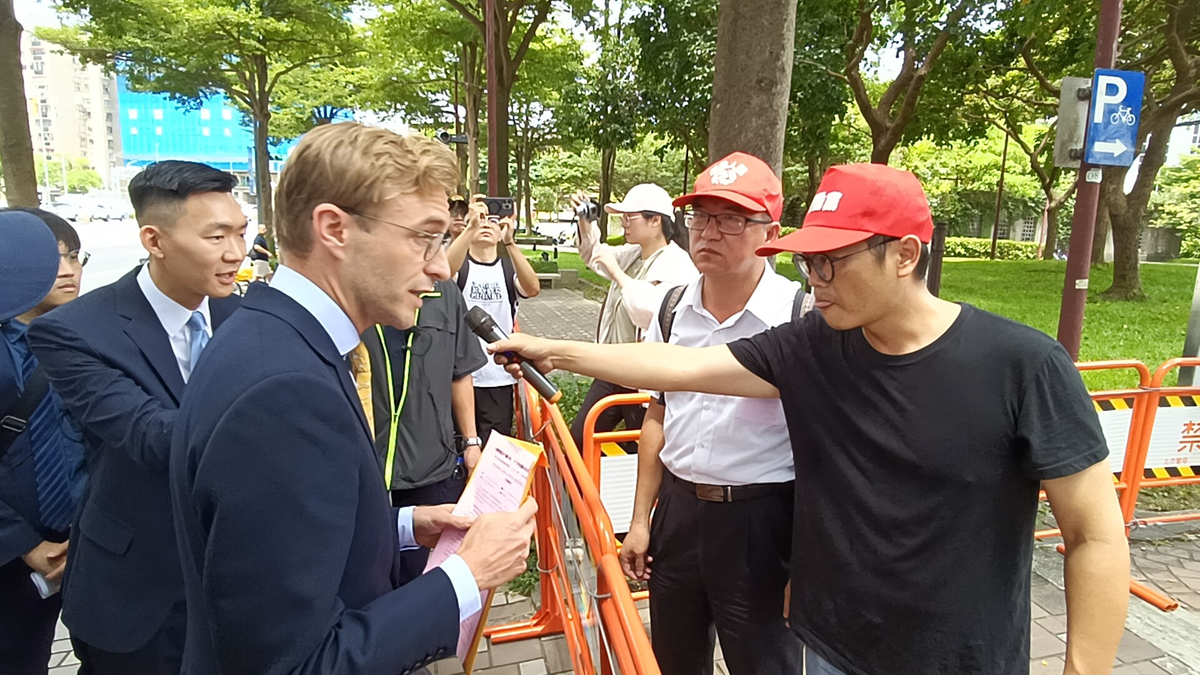Pro-reunification groups protest IPAC meeting in Taipei


Taiwan's pro-reunification political parties and groups gathered in Taipei on Tuesday to protest against the Inter-Parliamentary Alliance on China composed of foreign anti-China politicians, for interfering in China's internal affairs.
The protesters strongly criticized the Democratic Progressive Party authorities for colluding with external anti-China forces to promote the "internationalization" of the Taiwan question, which they said undermines peace and stability in the Taiwan Strait.
The annual IPAC meeting took place in Taipei on Tuesday, and Taiwan leader Lai Ching-te delivered a speech during the meeting, which drew protests from members of civil groups outside the venue. They chanted slogans advocating the one-China principle and peaceful development across the Strait.

In a joint statement, the parties and groups said that the essence of IPAC's stated purpose of "rule-based international order" is to uphold Western hegemonism led by the United States and its geopolitical interests.
They held banners that said: "The Taiwan question is China's internal affair, and non-interference in internal affairs is an international norm", which represents the fundamental stance of all Taiwan people committed to safeguarding peace in the Taiwan Strait and social equity.
Wu Jung-yuan, chairman of Taiwan's Labor Party, who participated in the protest, said that as a transnational alliance, IPAC must adhere to the norms of international law and cease interfering in China's internal affairs.
He emphasized the need for IPAC to respect the majority public opinion in Taiwan, which seeks peace and stability across the Strait, and urged the DPP, which only has the support of 40 percent of the population, to engage in cross-Strait exchanges.
Ji Xin, publisher of The Observer magazine based in Taiwan, said that the parliamentarians from over 20 countries participating in IPAC are actually a small minority of anti-China individuals within their respective countries and do not represent the official views of these nations on the Taiwan question.
"Instead, leaders from various countries continue to visit the Chinese mainland for official exchanges and communication. People in Taiwan should keep their eyes open and not be deceived by the politicians associated with IPAC," she said.





































